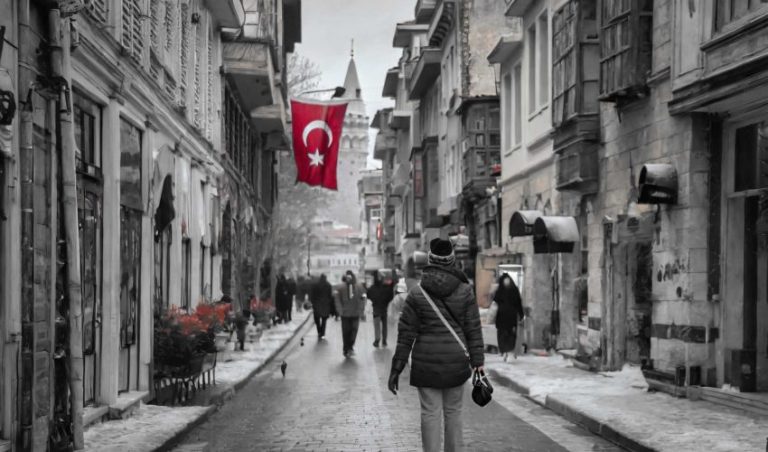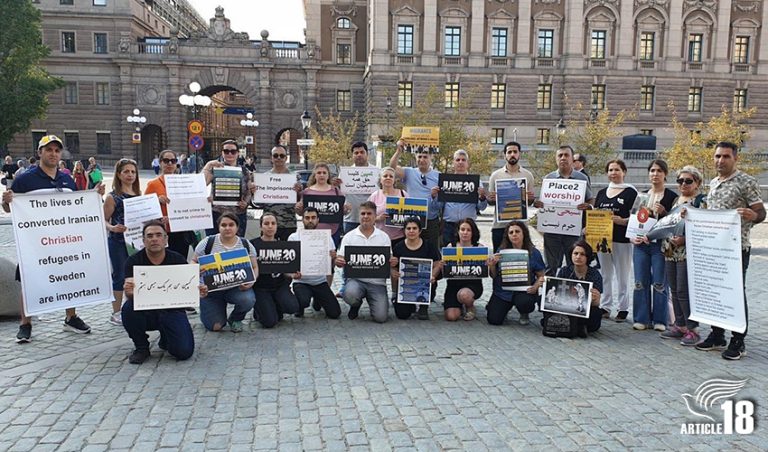The UK’s new guidelines for asylum cases involving Iranian Christian converts acknowledge there is a “real risk” of persecution for “ordinary” Christians in Iran, and not just leaders or those with a “particularly evangelical zeal”.
The guidelines have been updated to reflect the findings of a November court hearing for an Iranian referred to as “PS”, whose claim was ultimately rejected but whose case is likely to prove extremely significant for many future claims.
“PS Iran” is now the reference case for claims involving Iranian Christian converts, replacing the case of “SZ and JM” back in 2008, when the risk to “ordinary” Christians was found to be “insufficient” for refugee protection.
Since then, the situation for Christian converts in Iran was acknowledged to have “markedly deteriorated”.
The closure of almost all Persian-speaking churches was cited as the “most marked change”, alongside the finding that “simply being a Christian [convert] is enough to get you arrested”, and not necessarily being involved in leadership or evangelism.
The judges said it was never in question that there was a “causal nexus between the religious belief of Christians in Iran and the harms that they there suffer”; only the “extent” of those harms.
The ruling only considered the situation of converts to Christianity, and not Iran’s recognised Christian minority of ethnic Assyrian and Armenian descent, who they said were “tolerated” and “do not in general terms face a real risk of serious harm”.
Why was PS’s case rejected?
PS was ultimately found not to be a genuine Christian.
The judges acknowledged that assessing the genuineness of someone’s conversion is a matter “impossible to objectively verify”, as “it is not possible to make windows into men’s souls”. As a result, the new guidelines state that the claimant must only be able to show it to be “reasonably likely” that their conversion is genuine.
In PS’s case, however, his conversion was found to have been only a “charade”, following a previous rejection for asylum based on two unrelated grounds. This conclusion was based on the “haste” of PS’s baptism – just two weeks after joining a church following a spell in prison – and the lack of evidence of regular church attendance after he moved homes.
Article18 has reported on the challenges of assessing the genuineness of a convert’s faith, and on focusing asylum cases on such assessment. In a recent study by Open Doors Germany, one bishop called faith tests for converts “an attack on the Constitution”.
Risk on return
The judges said that of all of the evidence before them, it was the matter of the potential danger facing an asylum seeker upon their deportation to Iran that they “found most difficult to evaluate”.
Ultimately, they concluded that in the case of a disingenuous claim, there was no real risk of persecution, as, upon return, they would have no reason to refuse to sign an “undertaking” pledging to have no further involvement in Christian activities – and while they may then be monitored, they would soon be found to be of no further interest to the Iranian security services.
On the other hand, for a genuine convert, the judges said that being forced to sign such an undertaking would present the convert with a “stark choice: renounce your right to freedom of conscience and belief, or refuse to sign, and face prolonged detention and torture”.
By signing, the judges said the Christian would “surrender the very protection that the [Refugee] Convention is intended to secure him”.
“The convert who in fear chooses to sign that document will be quickly released, but will almost certainly be placed under surveillance,” they said. “The effect of that surveillance would be that his ability to practise his faith in his own country would be completely denied. The convert who refuses to recant, and to make the admissions required of him, is on the road to martyrdom: even if he manages to avoid ill-treatment during this process, he will be detained until he agrees to sign.”
‘Extraordinary measures’
The judges rejected the assertion by the barrister for the Secretary of State that “only a small proportion” of Christian converts experienced serious harm. “This may be the case,” they said, but “those who have managed to avoid such harms have done so because of the extraordinary measures that they routinely take to protect themselves and their families.
“To put it another way, we are in no doubt that if all of the Christian converts in Iran openly declared themselves to be Christian, the Iranian security services would be very busy.
“The fact that these people are existing ‘under the radar’ does not change the fact that they would be persecuted if they chose to live openly.”
The judges added that while not every detained convert may be subjected to ill-treatment, “there is an ever-present fear of ill-treatment”, while detainees are “routinely threatened and intimidated”.
“This psychological pressure will include the threat of physical harm to the individual or his loved ones and the threat of prosecution on serious charges up to and including apostasy,” they said.
“We are quite satisfied that the average Iranian Christian held in detention will know someone, or know of someone, for whom these threats have been realised. We have no doubt that for the genuine adherent this situation is extremely frightening.”
The judges said they were “left in no doubt” that the purpose of arrests of converts was to “try and prevent them from practising their faith through attendance at house-churches … a purpose pursued with malignancy, and with no legitimate purpose recognised in international law”.
“In that context, such short-term arbitrary arrests must amount to persecution,” they concluded.
‘Effective ban’ on collective worship
The judges were critical of the government’s position on several points, saying for example that it was “not apposite” to liken a Christian’s desire to meet together to worship with other Christians with a homosexual’s desire to attend a gay rights’ march.
Instead, the judges said the “effective ban” on collective worship for Christian converts deprived them of an “integral” element of their faith.
“Congregating to pray and worship forms part of the irreducible core of what it is to be a Christian,” they said. “It cannot be regarded as being on the margins of the protected right.”
Meanwhile, in an analysis piece for the website freemovement.org.uk, barrister Craig Holmes said “the government’s contention that it was acceptable for a person to have to hide their religious belief, to tolerate being unable to practice it legally, openly, or in fact at all, and to have to sign a legal document actively denouncing it on threat of prosecution is mildly astonishing.
“More so was the final limb of the Secretary of State’s case. The evidence suggested a spike in arrests at Christmas (occasionally considered to be an important Christian festival). The Secretary of State disagreed, and had a simple solution to the plight of the convert who may fear being picked up by the regime whilst on the way to celebrate: don’t go to church at Christmas.”




0 Comments
Trackbacks/Pingbacks